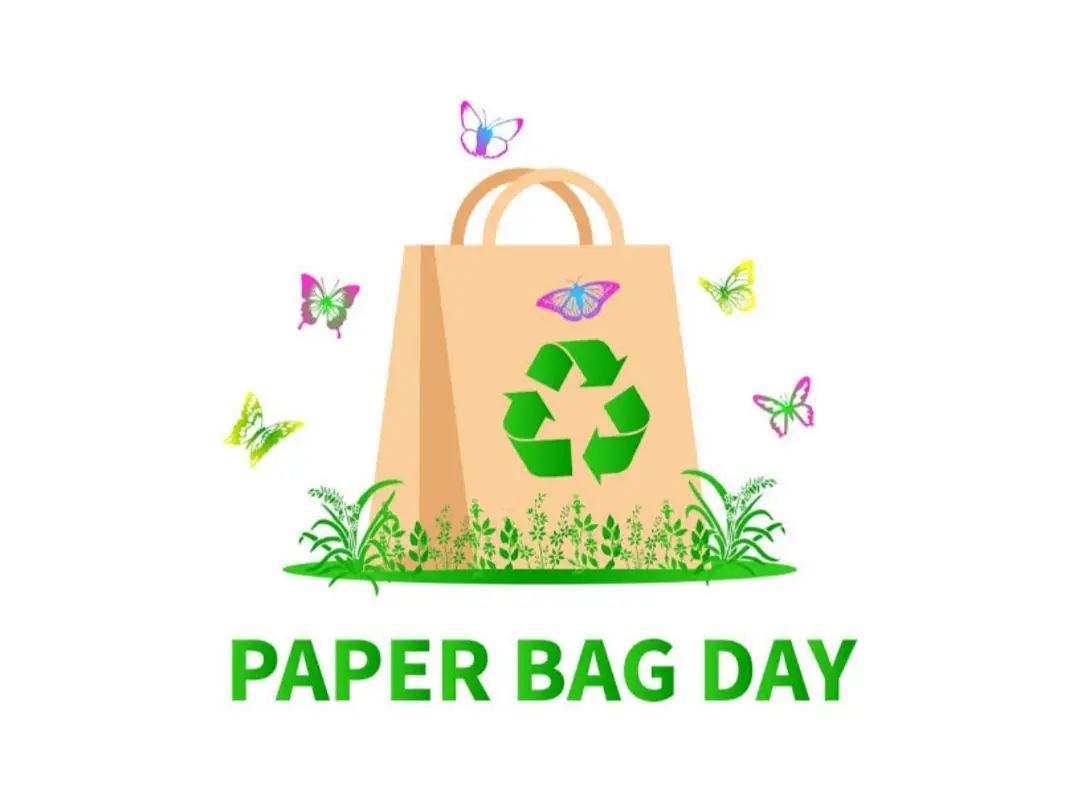Paper Bag Day: Celebrating a Sustainable Choice
Every year on July 12th, we celebrate Paper Bag Day, a day dedicated to promoting the use of paper bags as a sustainable alternative to plastic bags. This day encourages individuals and businesses to recognize the environmental benefits of paper bags and adopt eco-friendly practices. In this blog, we'll explore the history of paper bags, their advantages over plastic, and how we can all contribute to a greener future by choosing paper.
The History of Paper Bags
The invention of the paper bag dates back to the 19th century. In 1852, Francis Wolle, a schoolteacher from Pennsylvania, invented the first machine to mass-produce paper bags. This innovation revolutionized the packaging industry, providing a practical and affordable alternative to cloth and plastic bags. Since then, paper bags have become an integral part of retail and grocery shopping, evolving in design and functionality to meet various needs.
Advantages of Paper Bags
Paper bags offer several environmental and practical benefits that make them a preferred choice over plastic bags:
- Biodegradability: Unlike plastic bags, which can take hundreds of years to decompose, paper bags break down naturally within a few months. This significantly reduces the environmental impact and helps keep our ecosystems clean.
- Recyclability: Paper bags are easily recyclable. They can be processed into new paper products, reducing the need for virgin materials and minimizing waste.
- Sustainable Production: Paper bags are made from renewable resources, such as wood pulp from responsibly managed forests. This sustainable sourcing helps conserve natural habitats and promotes biodiversity.
- Lower Carbon Footprint: The production and disposal of paper bags generally result in lower greenhouse gas emissions compared to plastic bags. Choosing paper supports efforts to combat climate change.
- Versatility: Paper bags come in various sizes and styles, making them suitable for a wide range of applications, from grocery shopping to gift wrapping. They can also be customized and branded, providing an eco-friendly marketing tool for businesses.
Practical Tips for Using Paper Bags
To make the most of Paper Bag Day and incorporate paper bags into your daily routine, consider these practical tips:
- Reuse and Recycle: Extend the life of paper bags by reusing them for multiple purposes, such as carrying groceries, packing lunches, or storing items. When they become worn out, ensure they are properly recycled.
- Choose Quality: Opt for sturdy, high-quality paper bags that can withstand multiple uses. Reinforced handles and thicker paper can enhance durability.
- Support Sustainable Brands: Purchase paper bags from companies that prioritize sustainable practices and use eco-friendly materials. Look for certifications like FSC (Forest Stewardship Council) to ensure responsible sourcing.
- DIY Projects: Get creative with used paper bags by turning them into DIY projects. You can make book covers, gift tags, or even decorative items, reducing waste and adding a personal touch to your creations.
- Educate Others: Spread awareness about the benefits of paper bags and encourage others to make the switch from plastic. Share information on social media, organize community events, and lead by example in your daily life.
The Future of Sustainable Packaging
While paper bags offer numerous advantages, it's essential to recognize that no single solution can address all environmental challenges. The key to sustainable packaging lies in a balanced approach that considers various factors, such as resource consumption, lifecycle impact, and waste management. Innovations in biodegradable materials, reusable options, and circular economy models are paving the way for a more sustainable future.
Conclusion
Paper Bag Day is a reminder of the positive impact we can make through simple, conscious choices. By opting for paper bags over plastic, we contribute to reducing pollution, conserving resources, and protecting our planet. Let's celebrate this day by embracing sustainable practices, supporting eco-friendly initiatives, and inspiring others to join the movement. Together, we can create a greener, cleaner world for generations to come.

